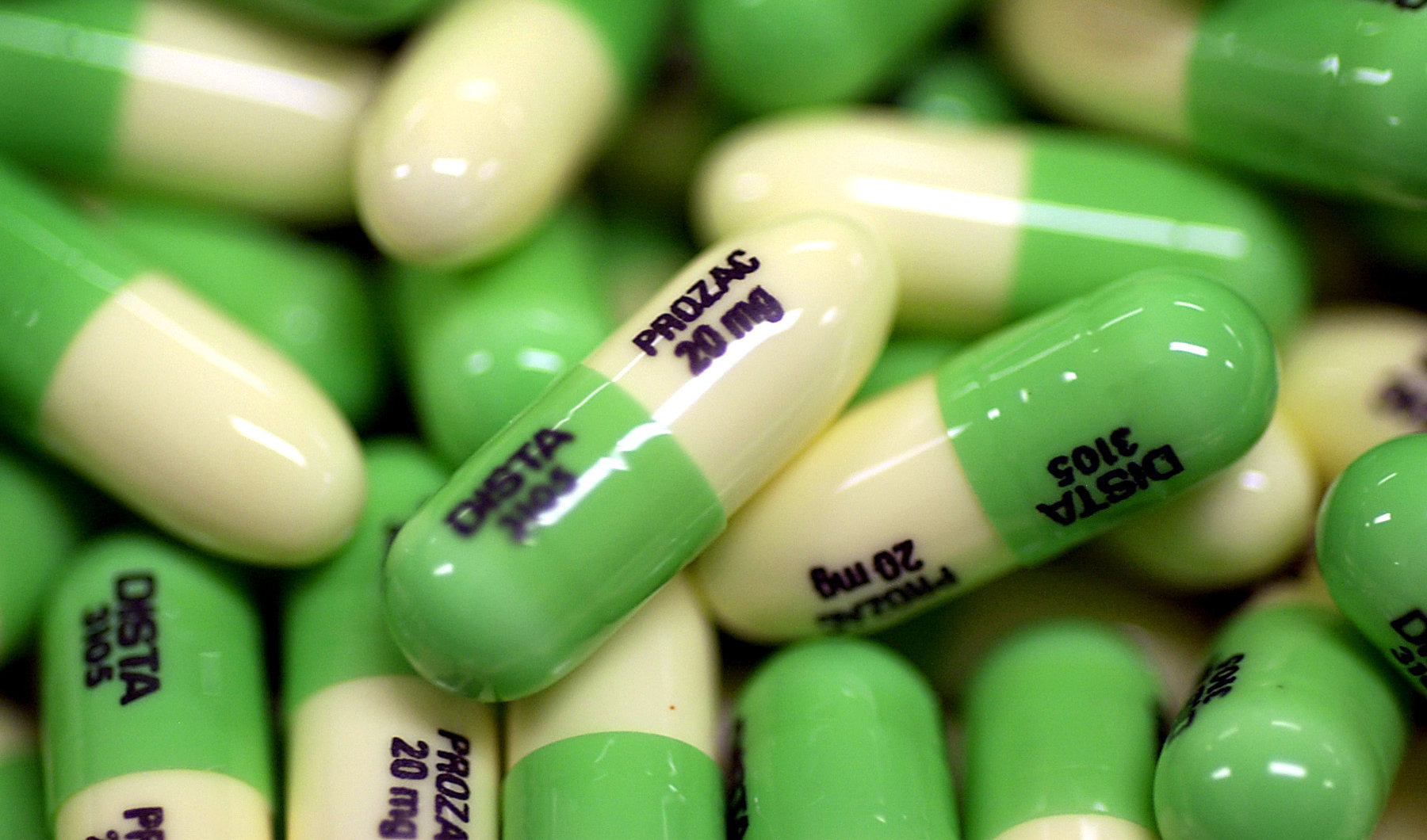You start a new antidepressant. Your mood lifts. You’re sleeping better. And then you step on the scale—and it’s dropped.
Coincidence? Not always.
While most antidepressants are known for causing weight gain, there’s growing curiosity—and some confusion—around whether certain medications can lead to weight loss instead.
So what really happens when you take anti-depression medication? Can it reduce appetite? Boost metabolism? Or is weight loss just a temporary side effect for a few people?
If you’ve been wondering “does anti depression medication cause weight loss?”, this article unpacks the science, experiences, and what to expect—without the medical jargon or unrealistic promises.
How Antidepressants Affect Weight: The Overview
There’s no one-size-fits-all answer. The truth is:
-
Some antidepressants are associated with modest weight loss, especially in the first few weeks
-
Others lead to weight gain, particularly over longer use
-
And for many, weight remains stable or fluctuates slightly
It often depends on:
-
Which medication you’re taking
-
Your baseline weight and metabolism
-
How your appetite and energy levels change with treatment
-
Coexisting conditions (like PCOS, anxiety, or sleep issues)
Let’s explore the most talked-about antidepressants linked to weight loss, and why.

Antidepressants Most Commonly Associated With Weight Loss
While most medications used for depression lean toward weight gain, there are a few exceptions worth noting.
1. Bupropion (Wellbutrin)
What it does: A norepinephrine-dopamine reuptake inhibitor (NDRI), commonly used for depression and smoking cessation.
Weight loss connection:
-
Known to suppress appetite in some users
-
May increase motivation and physical activity
-
One of the few antidepressants FDA-approved for weight-neutral or weight-reducing effects
Who it may help:
-
People who overeat due to emotional lows
-
Those with low energy and fatigue
-
Women with PCOS or insulin resistance-related weight gain
2. Fluoxetine (Prozac)
What it does: A selective serotonin reuptake inhibitor (SSRI), used for depression, anxiety, and OCD.
Weight effect:
-
May lead to initial weight loss in the first 4–8 weeks due to appetite suppression
-
However, long-term use is more likely to result in weight gain
Best suited for:
-
Individuals experiencing depression-induced appetite increases
-
Those using it for short-term treatment plans
3. Duloxetine (Cymbalta)
What it does: A serotonin-norepinephrine reuptake inhibitor (SNRI) used for depression, fibromyalgia, and chronic pain.
Weight effects:
-
Some report reduced appetite and slight weight loss
-
Others remain weight-neutral
-
Over time, weight tends to return to baseline
Best for:
-
Patients with pain + depression who are sensitive to SSRI-related weight gain
Honorable Mention: Desvenlafaxine (Pristiq)
Some users experience appetite suppression, but weight changes are typically minor and not guaranteed.
Why Do Some Antidepressants Cause Weight Loss?
Here’s what might be happening when weight drops after starting medication:
1. Appetite Suppression
Some medications, particularly bupropion, affect brain chemicals that reduce hunger signals.
2. Improved Energy + Motivation
As depression symptoms ease, people feel more inclined to move, exercise, and make healthier food choices.
3. Better Sleep = Better Metabolism
Restful sleep helps regulate hormones like ghrelin and leptin, which control appetite and fat storage.
4. Stabilized Blood Sugar or Cravings
Mood meds can reduce emotional eating driven by stress, anxiety, or compulsive tendencies.
When Weight Loss Isn’t a Good Sign
Sudden or excessive weight loss during antidepressant treatment isn’t always a positive outcome. Watch for signs that may indicate:
-
Undereating due to nausea or reduced appetite
-
Digestive upset (nausea, diarrhea, loss of taste)
-
Dehydration or fatigue
-
Increased anxiety or restlessness—common with some meds
-
Overcompensating by restricting calories or overexercising
Weight loss should feel natural, safe, and energy-supportive—not a side effect that makes you feel worse.

What to Ask Your Doctor If You Experience Weight Changes
If you’re noticing changes in weight after starting antidepressants—up or down—talk to your healthcare provider using questions like:
-
Is this weight change common with my prescription?
-
Could the dosage be affecting my appetite or digestion?
-
Do I need bloodwork to check thyroid, iron, or B12 levels?
-
Can we explore an alternative if weight changes are affecting my mood or energy?
You don’t have to suffer through it. There are multiple options—and some antidepressants are more weight-neutral than others.
Key Considerations for Women on Antidepressants
Weight-related responses to antidepressants can differ by gender. For women, consider:
-
Hormonal fluctuations (especially during perimenopause or PMS) can magnify weight shifts
-
Sleep and cortisol imbalances may worsen if the wrong med is prescribed
-
If you’re trying to manage PCOS, insulin resistance, or thyroid issues, drug choice matters even more
If you’re tracking weight, mood, and medication effects—journal entries can help identify patterns over time.
Lifestyle Pairings That Support Healthy Weight While on Antidepressants
Whether your med causes weight loss or gain, these habits help stabilize and protect your body:
1. Hydrate Early and Often
Start the day with lemon water, and keep a water bottle nearby. Many meds increase dehydration risk.
2. Focus on Protein and Fiber
These help you feel fuller, longer—especially if appetite spikes or dips.
3. Walk Daily (Even 20 Minutes Helps)
Boosts metabolism, supports mood, and helps regulate weight.
4. Sleep as a Non-Negotiable
Poor sleep slows fat loss and worsens anxiety.
5. Support Gut Health
Probiotics, fermented foods, and fiber support serotonin production—70% of which is made in the gut.

Real-Life User Perspectives
“I started Wellbutrin and lost 5 pounds in two weeks—but it wasn’t on purpose. I just didn’t feel like snacking all the time.”
—Alex, 34
“Prozac helped my mood, but I stopped eating breakfast for a while. My appetite dropped completely. I had to adjust the dose.”
—Maya, 28
“Cymbalta reduced my pain and helped me move more. I didn’t ‘lose weight’ from the pill, but I started feeling more in control again.”
—Jess, 42
What to Know If You’re Hoping for Weight Loss From Medication
It’s okay to hope that a new prescription might make things easier on your body—but keep this in mind:
-
Medications affect each body differently
-
Weight loss is not the primary goal of antidepressants
-
Focusing on mood, sleep, and energy improvement often leads to sustainable weight changes over time
-
Weight gain is not always permanent—your body may adjust
If you’re concerned about weight gain or unexpected weight loss, don’t wait. Talk to your prescriber early and honestly.
FAQ: Does Anti Depression Medication Cause Weight Loss?
1. Can antidepressants cause weight loss?
Yes—certain medications like bupropion (Wellbutrin) and sometimes fluoxetine (Prozac) or duloxetine (Cymbalta) have been linked to modest weight loss, particularly in the early stages of treatment.
2. Which antidepressant is most associated with weight loss?
Bupropion has the strongest research support for promoting weight loss or being weight-neutral, making it a preferred option for those concerned about gaining weight.
3. Why do antidepressants make some people lose weight?
They may reduce appetite, improve mood and energy, or alter how you process stress-related cravings, leading to fewer calories consumed or more activity.
4. Is weight loss from antidepressants long-term?
Not always. Some people experience temporary weight loss during the first 1–2 months, but it may stabilize or reverse with long-term use—especially with SSRIs.
5. Are there antidepressants that don’t affect weight at all?
Some drugs are considered weight-neutral, like sertraline (Zoloft), or have variable effects depending on the person. Always consult your doctor before switching.
6. Should I switch meds if I lose too much weight?
Possibly. If weight loss is significant, unwanted, or causing fatigue, it’s worth discussing dose adjustments or alternatives with your provider.
Weight Isn’t the Whole Story—Your Mental Health Is
So, does anti depression medication cause weight loss? Sometimes—especially with medications like bupropion. But it’s not guaranteed, and it’s rarely the most important outcome.
Your mood, motivation, energy, and ability to function in daily life come first. Any physical changes are secondary to the stability you’re building inside.
If weight loss happens, great. If it doesn’t—but your mind is clearer and your sleep is stronger—that’s still a powerful transformation.
Keep tracking. Keep asking questions. And most importantly—keep choosing what supports your full self, not just the number on the scale.